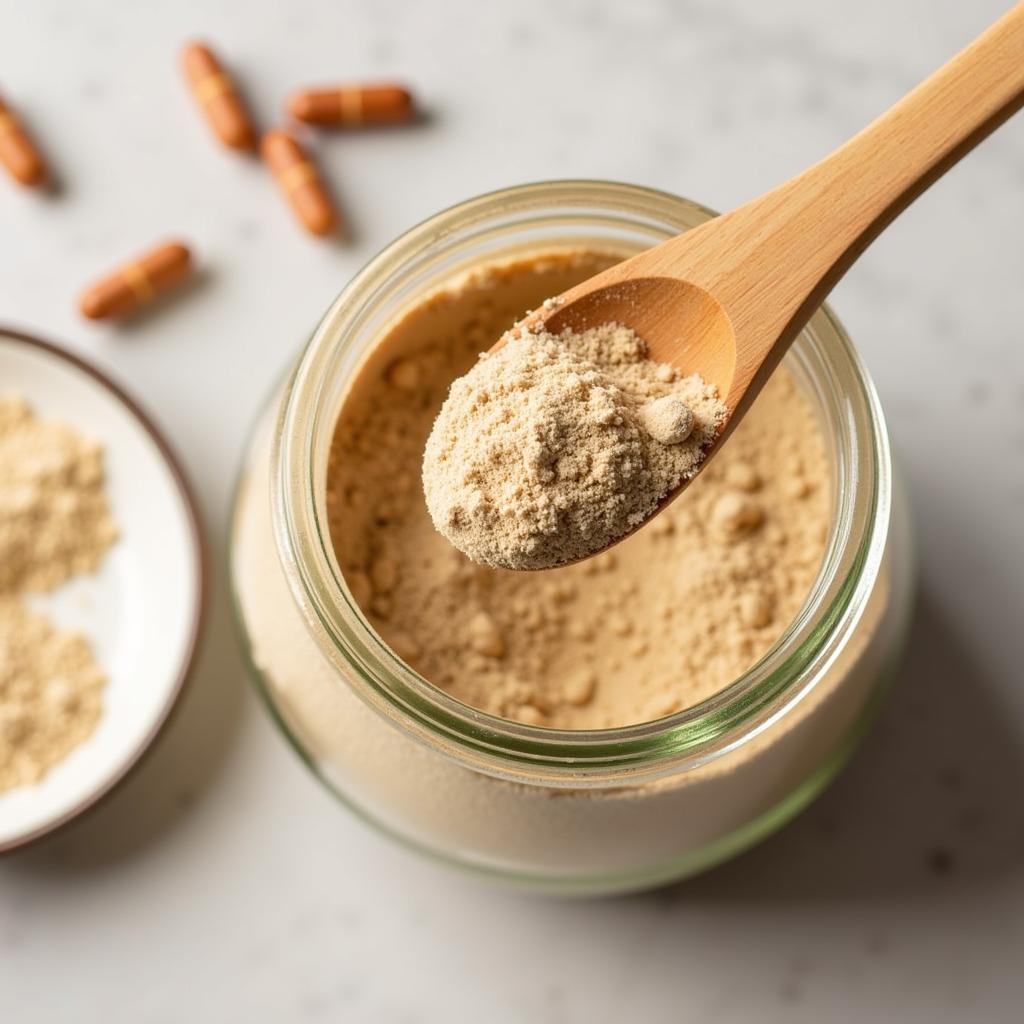Slippery Elm For Horses With Ulcers has become increasingly popular as a natural supplement to support digestive health. But what exactly is slippery elm, and how can it benefit your equine companion? This comprehensive guide will delve into the science-backed benefits of slippery elm for horses, its uses, dosage, and potential side effects.
Understanding Equine Gastric Ulcers
Before we explore the benefits of slippery elm for horses, it’s crucial to understand the prevalence and severity of equine gastric ulcers. These painful sores develop on the lining of the stomach and can affect horses of all ages, breeds, and disciplines.
Stress, intense training regimes, and the use of non-steroidal anti-inflammatory drugs (NSAIDs) are significant contributing factors to the development of ulcers in horses.
What is Slippery Elm and How Does It Work?
Slippery elm is a natural supplement derived from the inner bark of the slippery elm tree (Ulmus rubra), native to North America. It has a long history of use in traditional medicine for its soothing and healing properties.
When mixed with water, slippery elm forms a mucilage, a sticky substance that coats and soothes the mucous membranes of the digestive tract. This protective layer helps to:
- Reduce inflammation: Slippery elm contains antioxidants that help combat inflammation in the stomach and intestines.
- Buffer Excess Acid: The mucilage helps buffer excess stomach acid, reducing its irritating effects on the stomach lining.
- Promote Healing: Slippery elm encourages the production of mucus, which aids in healing damaged tissues and ulcers.
The Benefits of Slippery Elm for Horses with Ulcers
Research suggests that slippery elm can be a valuable tool in managing gastric ulcers in horses. Its soothing and healing properties offer several benefits, including:
- Relief from Ulcer Discomfort: By coating the stomach lining, slippery elm helps protect ulcers from further irritation, offering relief from pain and discomfort.
- Promote Ulcer Healing: Slippery elm’s mucilage stimulates the production of mucus, which aids in the healing process of damaged stomach tissues.
- Reduce Inflammation: The anti-inflammatory properties of slippery elm help reduce inflammation in the stomach and intestines, further supporting the healing process.
 Slippery elm bark powder
Slippery elm bark powder
How to Use Slippery Elm for Horses
Slippery elm for horses is readily available in various forms, including:
- Powder: The most common and versatile form, easily added to feed.
- Pellets: Pre-measured pellets offer convenience.
- Liquid Extract: Can be added to water or feed.
The appropriate dosage of slippery elm for horses depends on the horse’s weight and the severity of the ulcers. It’s best to consult with your veterinarian to determine the right dosage for your horse.
Potential Side Effects of Slippery Elm
Slippery elm is generally considered safe for horses when used appropriately. However, some potential side effects may include:
- Allergic Reactions: While rare, horses may be allergic to slippery elm.
- Digestive Upset: High doses of slippery elm may cause mild digestive upset, such as loose stools.
Is Slippery Elm Right for Your Horse?
If your horse suffers from gastric ulcers or displays symptoms like poor appetite, weight loss, or recurrent colic, consider discussing slippery elm with your veterinarian. As a natural supplement, slippery elm can be a valuable addition to your horse’s ulcer management plan.
Frequently Asked Questions
Q: Can I give slippery elm to my horse for colic?
A: While slippery elm can soothe the digestive tract, it is not a treatment for colic. Colic is a serious condition that requires immediate veterinary attention.
Q: How long does it take for slippery elm to work for ulcers in horses?
A: The time it takes for slippery elm to show noticeable effects can vary depending on the horse and the severity of the ulcers. Some horse owners report seeing improvements within a few days, while others may take a week or two.
Need More Help?
For personalized guidance on using slippery elm for horses with ulcers, contact our expert team at Justus Horses USA. We’re here to support you in providing the best possible care for your equine companion. Call us at 0772127271, email us at [email protected], or visit us at QGM2+WX2, Vị Trung, Vị Thuỷ, Hậu Giang, Việt Nam. Our dedicated customer support team is available 24/7 to answer your questions.
Interested in learning more about supporting your horse’s digestive health? Check out our article on the best ulcer supplement for horses.